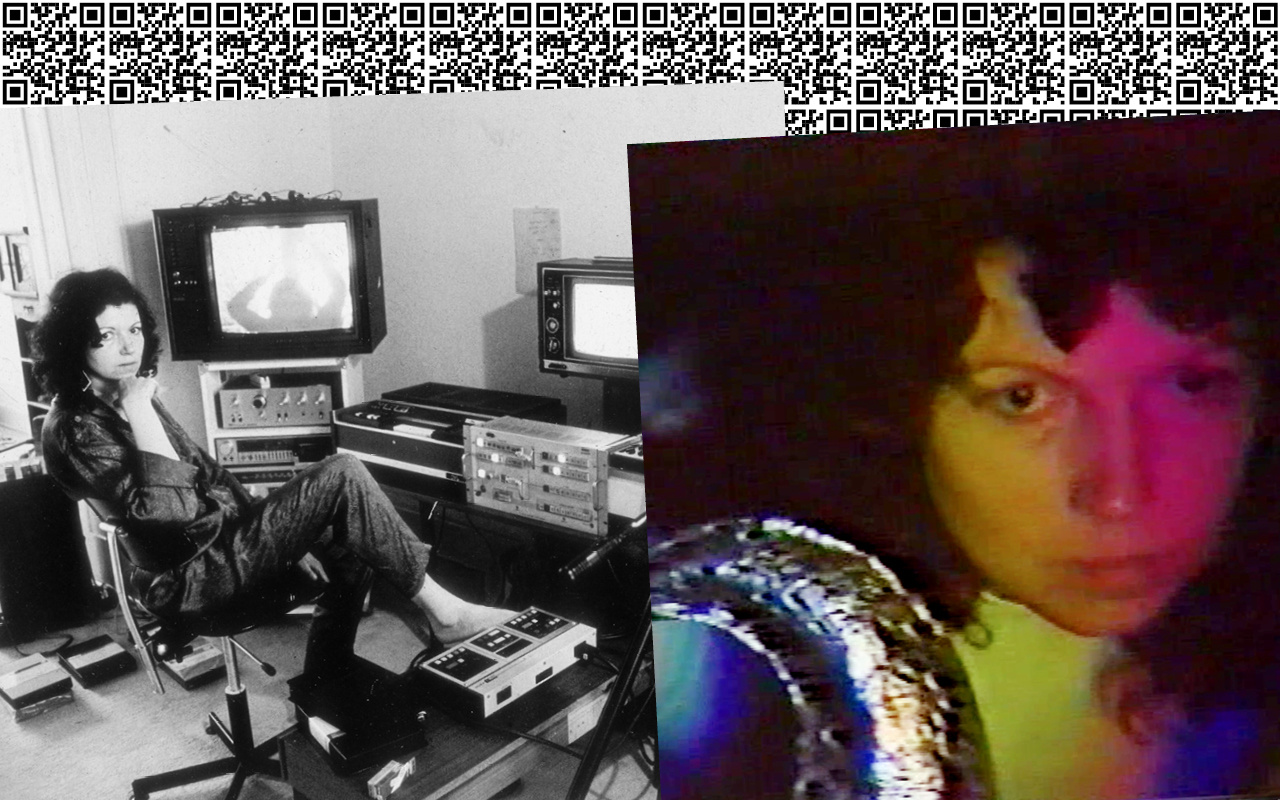- Exhibition
Ulrike Rosenbach. today is tomorrow
Works since 1969
Sat, June 24, 2023 – Sun, February 04, 2024
- Location
- Atrium 8+9, 1st floor
To mark her 80th birthday, the ZKM | Karlsruhe is presenting a major exhibition on the work of media artist Ulrike Rosenbach. Ulrike Rosenbach was one of the first artists in Germany to use the medium of video — as early as the beginning of the 1970s. In her works, she addresses questions of female identity, gender-specific role attributions, and the holistic relationship between humans and nature.
Ulrike Rosenbach’s early performances, in which she experiments with video’s technical capabilities of direct recording, storage and playback of videos, sometimes attaching cameras to her body, received wide international acclaim. Through her participation in landmark exhibitions such as documenta 6 (1977) and documenta 8 (1987), Rosenbach became the most renowned German performance and video artist of her time.
While still a student at the Düsseldorf Art Academy, where she studied sculpture under Norbert Kricke and Joseph Beuys, the artist made the role of women in society her subject. Her hood and collar objects can be understood as symbols of women’s lack of freedom in patriarchal forms of society. She also took up this theme in her early video works, created as physical actions without an audience in front of a fixed camera in her studio, in which she questions her role as an artist, wife, and mother.
Her involvement with the American Women's Liberation Movement and a teaching position for feminist media art at the renowned California Institute of the Arts (Cal Arts) in Valencia/ Los Angeles, California in the mid-1970s reinforced Rosenbach's feminist approach and led to an expansion of her work: instead of autobiographical themes, she then focused on female role models and clichés and their cultural transmission. Rosenbach frequently utilized quotations from art history and worked with live recordings of herself superimposed on images of female figures from mythology, religion, art, and popular culture.
With the advances in digital image processing technology, Ulrike Rosenbach's videos in the 1980s changed into image compositions in which she used visual effects such as montages of computer-generated image and cross-fades. In search of primordial feminine principles and archaic matriarchal lines of tradition, in these years she increasingly shifted the focus of her works to fundamental aspects of the coexistence of humans and nature, the structure of space and time, and the cycle of coming into being and passing away.
In the 1990s, Ulrike Rosenbach created media sculptures in which the far-reaching emancipatory and sociopolitical contents of her work were plastically compacted. The artist transformed many of her performances into complex spatial installations. Her most recent video works are summaries and syntheses of earlier work cycles in which, in addition to quoting images from her own works, she draws on edited sequences from film history and other sources, combining these into atmospherically dense, new image collages.
Since 2018, Ulrike Rosenbach's video archive, which consists of more than 600 analog tapes, is being digitized and processed at ZKM. This retrospective exhibition, which the late Peter Weibel initiated and which is created in close collaboration with the artist, draws on the results of this work on the archive and presents over 120 works — objects, videos, media installations and video sculptures, photographs, and drawings spanning more than five decades.
»Ulrike Rosenbach. today is tomorrow« is part of a series of exhibitions at ZKM that honor the important work of a pioneering generation of media artists. The exhibition will also be presented in the context of ZKM program focus »Female Perspectives«.
Monograph on the work of Ulrike Rosenbach
In the course of the exhibition, a monograph titled Ulrike Rosenbach. Witnesses, a publication on the work of Ulrike Rosenbach, edited by Hendrik Folkerts, curator of international contemporary art at the Moderna Museet, Stockholm together with Peter Weibel (1944–2023), will be published by Buchhandlung Walther und Franz König, Cologne.
Imprint
- Curator
- Co-Curator
Team
Miriam Schmedeke (project assistant)
Dorcas Müller (preparation and digitization of AV media)
Anne Däuper (technical project management)
Marlies Peller (technical project management)
Matthias Gommel (scenography)
Leonie Rök (conservation)
Cornelia Eisendle (curatorial assistance)
Graphic design
Linda van Deursen
Special thanks to
Galerie Gisela Clement, Bonn, who supports the cooperation with Ulrike Rosenbach
